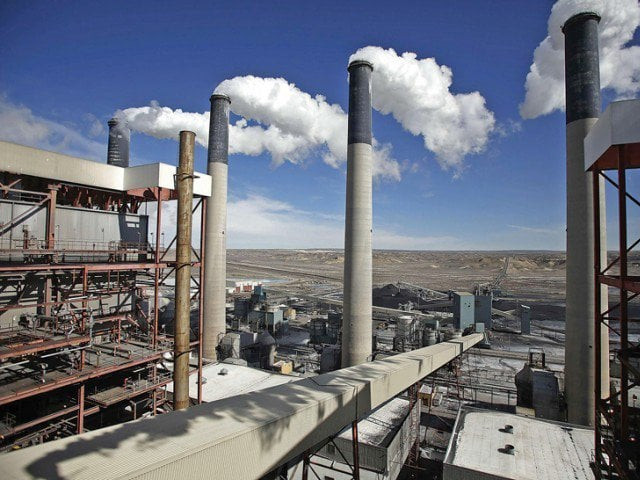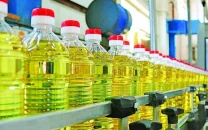Gas-based power production rises, but it comes at higher cost
Its share increased to 33.1% in March this year from 25.5% a year earlier

Its share increased to 33.1% in March this year from 25.5% a year earlier. PHOTO: REUTERS
However, despite switching from oil to gas, it has missed a key objective of producing cheaper electricity. As part of a plan, the government wanted to reduce power production through oil due to its high cost, but it failed to import gas at comparatively lower prices.
According to the National Electric Power Regulatory Authority (Nepra), the cost of power generation through gas stood at Rs5.86 per kilowatt-hour (kWh) compared to the cost of Rs5.13 per kWh for oil-based electricity in March 2016.
The regulator said power generation from gas-based plants touched 2,231.05 gigawatt-hours, beating the production from oil-based plants at 1,992.02 gigawatt-hours in the month.
In the last about one year (March 2015 to March 2016), the cost of power production with the help of gas surged 28% compared to a significant drop of 47% in the cost of production from oil (residual fuel oil or RFO).
“The cost of gas-based power production has shot up due to availability of the fuel at higher prices,” commented Mubashir Jalal of Nepra.
“Gas price rose to approximately Rs700 per million British thermal units (mmbtu) in March 2016 from about Rs488 in March 2015. Imported LNG is available at Rs900 per mmbtu,” he said.
On the other hand, the cost of power production from oil has dropped significantly in line with markedly lower international crude prices.
Water and Power Development Authority (Wapda) Chairman Zafar Mahmood told The Express Tribune that a higher volume of gas was available in the system now. “Gas consumption usually goes down in summer... but its utilisation goes up in winter when people need it for heating purposes in remote and cold areas,” he said.
He was of the view that power plants run on gas were more efficient than plants operated on oil and coal. Many power plants in Pakistan have been designed in such a way that they could run on two types of fuel. “Kot Addu Power Company (Kapco) is running such plants,” he said.
Among fuels consumed for electricity production, gas comes on top. Its share in power production rose to 33.13% in March 2016 compared to 25.53% in March a year earlier.
For those who think that an increase in oil prices in the future would justify the shift towards gas since the price of gas is thought to be insulated from the global market, it might come as a surprise that the price of imported gas is pegged with international crude oil prices. Imported LNG is fixed at 13.37% of the Brent. This means that in the event that oil prices face a precipitous incline, imported gas prices will face similar trajectory.
The share of power production from oil dropped to 29.58% in March 2016 against 38.84% in the same month of 2015.
The contribution of hydroelectric power increased to 27.55% in March this year from 20.86% in March 2015.
Citing the reason for higher production of hydroelectric power, Wapda’s Mahmood said increased water releases from dams had made it possible. “Rains in northern areas and Azad Kashmir helped to increase hydel power generation in March this year.”
Pakistan is also gradually increasing power production from alternative energy sources. It managed to add 14.73 gigawatt-hours (0.22% of total production) from solar energy in March 2016 compared to the same month a year earlier when it did not produce any solar power.
Similarly, wind power production went up to 51.40 gigawatt-hours (0.76% of the total) from 33.29 gigawatt-hours (0.51%) in March 2015.
However, it has been observed that the power tariff for alternative energy resources has remained higher than conventional sources of energy.
Published in The Express Tribune, May 7th, 2016.
Like Business on Facebook, follow @TribuneBiz on Twitter to stay informed and join in the conversation.



















COMMENTS
Comments are moderated and generally will be posted if they are on-topic and not abusive.
For more information, please see our Comments FAQ